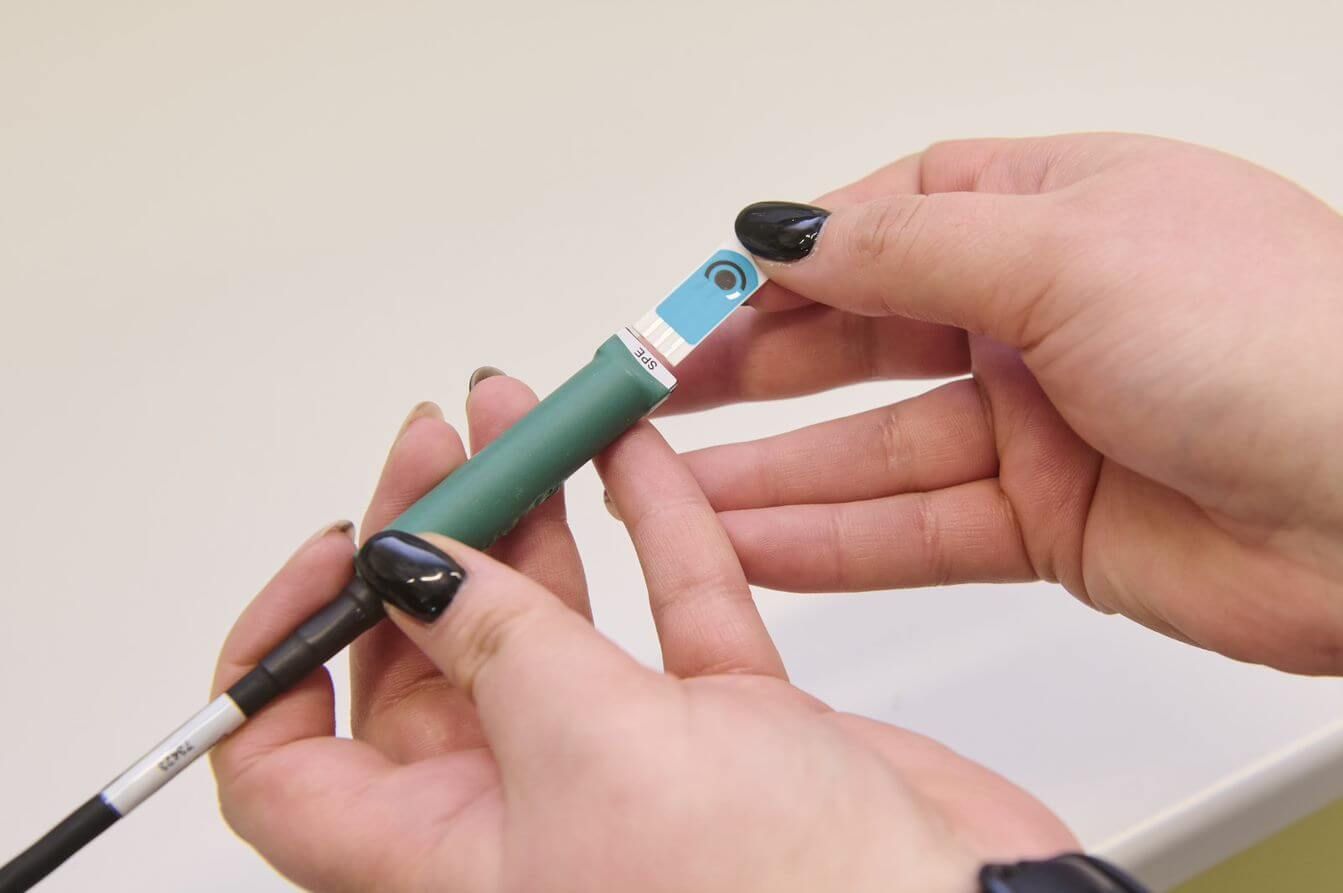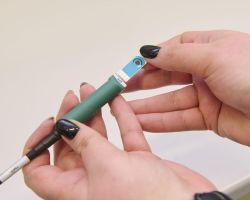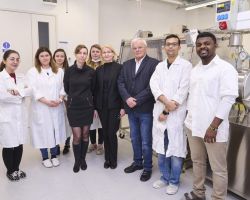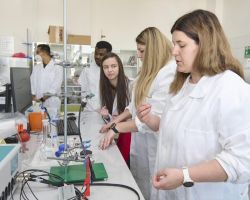More accurate determination of sugars will help people with diabetes
Zlín, 18 February 2022 – How to make blood sugar measurements more accurate? Scientists from the Centre for Polymer Systems (CPS) and the Footwear Research Centre (FRC) at Tomas Bata University (TBU) in Zlín have teamed up with researchers from the Pavel Josef Šafařík University (PJSU) in Košice to work this out since accurate blood sugar measurement is very important for adjusting the amount of insulin applied.
The specialists have invented a new composition for the surface of the test sensor, which is actually the well-known strip inserted into the glucose meter. It can now determine blood sugar levels up to 70% more accurately. The proposed sensing surface is designed for electrochemical glucose meters, which measure the amount of sugar in the blood based on the biochemical reaction triggered by electric current.
“The basis of the new composition is chitosan – a polysaccharide which has the ability to bind conductive metals. The right combination of these two basic components increases the response of the electrical current to the presence of glucose, enabling very accurate determination of blood sugars,” specifies Prof. Petr Sáha, the supervisor of the Energy and Composite Materials group, which he leads at the Centre for Polymer Systems.
“The action of current glucose meters makes use of the principle of oxidation of glucose in the presence of an enzyme. However, as the enzyme is an unstable substance, we work to replace it with nanoparticles that would facilitate more accurate determination of sugar or possibly insulin. In addition, replacing this enzyme with nanoparticles could significantly reduce the price of the sensors as such,” explains Prof. Renáta Oriňaková, the project investigator from the Department of Physical Chemistry at the Faculty of Natural Science of the Košice University.
“Sensors prepared in this way will be more stable, more accurate and faster. At the same time, they will have a longer service life and will be less sensitive to storage conditions,” adds Dr. Ivana Šišoláková, a member of the research team. While for the current sensors the service life is about half a year, the upgraded ones could have a lifetime of up to five years.
Already now, the principle of the new sugar measurement method is under protection through an application to register an invention, which is now being examined by the Czech Patent Office.
Simultaneously, an intense process of preparation of various combinations of sensing materials is underway at both universities in order to achieve the highest possible sensitivity of the sensor strips. It is assumed that within a few months, practical testing of the prepared prototypes will begin.
Kontakt:
Mgr. Petra Svěráková
Tisková mluvčí
Univerzita Tomáše Bati ve Zlíně
tel: 777 852440





